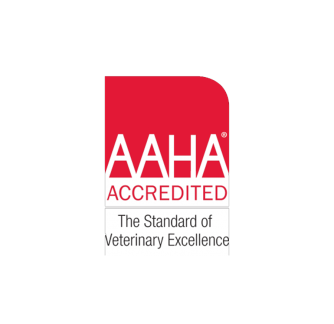Coventry Animal Hospital

Feline Center
VACCINATION PROTOCOL
6 - 8 weeks – FVRCP
10 - 12 weeks – FVRCP, Leukemia (outdoor cats)
12-16 weeks - Rabies (per Pennsylvania state law)
14 - 16 weeks – FVRCP, Leukemia
This vaccination protocol is based upon AAHA recommendations. The veterinarian may change these recommendations based upon the lifestyle and risk of your pet.
FELINE AIDS AND LEUKEMIA TESTING
FIV and FELV are contagious and potentially deadly diseases that can be passed to kittens from their infected mothers. This test should be performed in kittens after 8 weeks of age.
SPAY / NEUTER
Recommended at 6 months of age.
Blood work and ECG screening is performed prior to anesthesia.
Any remaining deciduous teeth should be extracted at this time.
MICROCHIPPING
We utilize Home Again microchips which are accepted internationally.
This microchip is permanent ID that links your pet to you. Learn more here!
Once your pet receives a microchip, you can apply for a lifetime license.
STOOL SAMPLE EXAM (OVA, PARASITES & GIARDIA)
We recommend stool sample exams annually to keep our pets and family members healthy.
If your pet’s stool sample exam comes back positive for a parasite, we will notify you with the results, and provide appropriate treatment, including when to submit another stool sample to be sure the parasites have cleared your pet’s system.
FLEA, TICK & HEARTWORM PREVENTION
Revolution PLUS is recommended for use in cats 8 weeks of age or older. It is a heartworm, tick, and flea prevention that treats and also controls ear mites, hookworms and roundworms.
Bravecto is a topical flea and tick prevention that lasts 3 months. You can use this product starting at 6 months of age.
DENTAL CARE
Now is a great time to get your kitten used to the sensations of tooth brushing.
At home, practice opening your pet’s mouth and lift your pet’s lips on a daily basis. After they are comfortable with that sensation, start rubbing your fingers on their gums and teeth on a daily basis.
We offer finger brush kits, tooth paste specific for pets, dental treats and dental diets. Please wait until adult teeth are present before brushing.
Appropriate chew toys can also help maintain your pet’s oral health. Toys should be made from material that you can indent with your thumb nail. If the toy is too hard, your pet could be at risk for fracturing teeth.
PET INSURANCE
There are many types of insurance coverage for your pet. Some insurance plans offer coverage for injuries/illnesses, some plans offer coverage for wellness/ preventative needs, and some plans offer coverage that is comprehensive (both illness and wellness). There are several companies to choose from with a few listed below.
ASPCA Pet Health Insurance
Pet Plan Insurance
Trupanion Insurance
Nationwide Insurance
Embrace
Trupanion Insurance offers 30 days of free insurance if you contact them within 24 hours of your first veterinary exam. Trupanion also directly reimburses your veterinarian.
KITTEN DIETS
We recommend offering foods that have been AAFCO tested, not formulated, on cats and are for the kitten life stage, not adults or seniors. If a food has been AAFCO tested, it will say so on the bag.
Our veterinarians recommend:
Hill’s Science Diet
Royal Canin
Iams / Eukanuba
Purina Pro Plan
Purina One
There are many other good quality foods on the market, but be cautious. Expensive marketing campaigns are misleading and do not always correspond with the quality of the food.
GETTING YOUR CAT TO THE VET
Many cats dislike going to the veterinarian, and that starts with the difficulty of getting the cat into the carrier. If we can make this step easier, the entire veterinary visit is usually less stressful.
Understanding your Cat’s Behavior:
Respect your cat’s need for time to become familiar with new situations, people and places.
Stay calm. Cats can sense our anxiety or frustrations, which may cause them to become fearful or anxious.
Give rewards to encourage positive behavior. Be persistent and reward every time!
Helping your Cat Become Comfortable with the Carrier:
Make the carrier a familiar place at home by leaving it in a room where your cat spends a lot of time.
Place familiar bedding, with your scent, helping them feel secure, inside the carrier.
Place treats, catnip or toys inside the carrier to encourage the cat to enter at home.
Types of carrier:
An easily removable top allows a cat which is fearful, anxious or in pain to stay in the bottom half of the carrier for exams.
Choose carriers that are sturdy, secure and stable for the cat, as well as easy for you to carry.
Carriers should be seat-belted into the car to keep your cat safer and to reduce the bumpiness of the ride.
We can provide many brochures that go into extensive detail about all types of things to help cats come into the office, with house-soiling issues, environmental needs and much more!
ENVIRONMENTAL ENRICHMENT
Bored cats can get frustrated and begin to exhibit unwanted behaviors. They can take out their frustrations in destructive ways like scratching, potty accidents, or even aggression. There are many simple and easy ways to stimulate your cat’s mind and body, from toys to food games and DIY projects with items you probably already have in your home.
Providing elevated spaces, perches or a cat tree can allow your cat to engage in natural predatory behavior. A lower window perch where your cat can watch nature outside is not only great for your feline's visual enrichment but perfect for senior cats who may lack mobility and can't climb a cat tree. A circulating water system is great to occupy your cat and keep water fresh- their curiosity alone will keep them constantly hydrated. Food puzzles can also be great enrichment tools and slow down fast eating cats or help with weight loss. The internet has many ideas for DIY Cat Enrichment Toys – take a look and be creative! But avoid strings and other things that could be swallowed by your cat.

